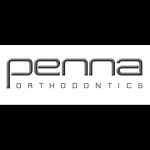How to Care for Your Gums and Prevent Recession
Taking care of your gums is just as important as caring for your teeth. As someone who has experienced the discomfort and complications of gum recession firsthand, I can tell you that it's something you definitely want to avoid. Gum recession is a gradual process where the gum tissue pulls back from the teeth, exposing more of the tooth or its root. Over time, this can lead to tooth sensitivity, cavities, and even tooth loss if left untreated. But the good news is, with proper care and attention, gum recession can be prevented, and you can maintain healthy gums for life.
1. Understanding Gum Recession: What It Is and Why It Happens
Before diving into prevention, it's important to understand what causes gum recession. Gum recession occurs when the gum tissue surrounding the teeth wears away, causing the tooth roots to become exposed. This can lead to various issues, such as sensitivity to hot or cold temperatures, and it can increase the risk of tooth decay and gum disease.
From my own experience and research, the main causes of gum recession include:
- Poor Oral Hygiene: Failing to brush and floss regularly can lead to plaque buildup, which irritates the gums and leads to gum disease. This can eventually cause the gums to recede.
- Genetics: Some people are more prone to gum recession due to their genetic makeup. If your parents experienced gum recession, there's a higher likelihood you might too.
- Brushing Too Hard: Aggressive brushing with a hard-bristled toothbrush can wear down the enamel and damage the gums, leading to recession.
- Periodontal Disease: Gum disease is a major factor in gum recession. If left untreated, it can destroy the tissue and bone that support your teeth, leading to recession.
- Hormonal Changes: Changes in hormone levels, particularly during pregnancy, menopause, or menstruation, can make gums more vulnerable to recession.
- Tobacco Use: Smoking or chewing tobacco can cause gum recession by reducing blood flow to the gums and promoting the growth of harmful bacteria.
Understanding these causes can help you take proactive steps to prevent gum recession from happening in the first place.
2. Proper Brushing and Flossing Techniques to Protect Your Gums
One of the most important things you can do to care for your gums and prevent recession is to brush and floss properly. I know it may sound basic, but many people don't realize the difference between effective and ineffective brushing techniques.
2.1 Brushing with the Right Technique
When I first learned about gum recession, I realized that my own brushing habits weren’t as gentle as they should have been. I used to brush my teeth vigorously, thinking it would help clean better, but this actually contributed to my gum issues. The key to protecting your gums is using the right brushing technique:
- Use a Soft-Bristled Toothbrush: A soft-bristled toothbrush is less abrasive on the gums and enamel than a hard-bristled one. I switched to a soft brush and immediately felt less irritation along my gum line.
- Brush in Circular Motions: Instead of scrubbing back and forth, gently brush in small, circular motions. This helps remove plaque without putting too much pressure on your gums.
- Avoid Brushing Too Hard: Brushing too hard can damage your gums and wear down the enamel. Try to brush gently with a light touch.
2.2 Flossing Daily
Flossing is just as important as brushing when it comes to gum health. Flossing helps remove food particles and plaque between your teeth where a toothbrush can’t reach. I personally noticed a difference in my gum health when I began flossing regularly. Here are a few flossing tips:
- Use Gentle Motion: When flossing, gently slide the floss up and down the sides of each tooth. Avoid snapping the floss between your teeth, as this can damage the gum tissue.
- Don’t Skip Any Teeth: It’s essential to floss every tooth, especially the back ones where food and plaque tend to accumulate.
3. Regular Dental Checkups and Professional Cleanings
Visiting your dentist regularly is another essential part of preventing gum recession. I’ve found that professional cleanings are one of the best ways to ensure that plaque buildup is properly removed, reducing the risk of gum disease. During your visit, your dentist can also check for early signs of gum recession and advise you on how to prevent it from progressing.
Regular checkups also give your dentist the opportunity to assess your gum health and catch any potential issues before they become serious. If you have a family history of gum disease or recession, it’s especially important to have frequent checkups to monitor your gum health.
4. Lifestyle Changes That Support Gum Health
In addition to proper brushing and flossing, making a few lifestyle changes can go a long way in supporting your gum health. I’ve noticed that small adjustments can make a big difference in the long run:
4.1 Eat a Balanced Diet
Eating a nutritious diet rich in vitamins and minerals, especially vitamin C, is vital for gum health. Vitamin C helps with collagen production, which is important for healthy gum tissue. I started incorporating more fruits and vegetables like oranges, strawberries, and leafy greens into my diet, and it helped strengthen my gums.
4.2 Avoid Tobacco Products
As I mentioned earlier, smoking or chewing tobacco can significantly contribute to gum recession. Tobacco products reduce blood flow to the gums, making them more prone to infection and damage. Quitting tobacco can dramatically improve the health of your gums and reduce the risk of recession.
4.3 Manage Stress
Believe it or not, stress can also affect your gum health. I found that when I was stressed, I tended to grind my teeth, which put extra pressure on my gums. Stress can also weaken the immune system, making it harder for your body to fight off gum disease. Finding ways to manage stress, such as through exercise, meditation, or hobbies, can help protect your gums.
5. Seeking Professional Help for Gum Recession
Even with the best prevention strategies, gum recession can still happen. If you notice your gums receding or if you experience increased tooth sensitivity, it's important to visit a dentist or periodontist for professional advice. Treatments for gum recession range from deep cleaning (scaling and root planing) to more advanced procedures such as gum grafting.
After a professional cleaning and evaluation, my dentist was able to provide me with a treatment plan that helped stop my gum recession from worsening. If you’re experiencing significant recession, don’t hesitate to seek professional care to address the issue before it becomes more severe.
6. Ready to Take Care of Your Gums?
Taking care of your gums doesn’t have to be difficult, but it does require consistent effort. With proper brushing, flossing, regular checkups, and lifestyle changes, you can keep your gums healthy and prevent recession. If you’re looking for more tips on gum health and dental care, check out Dentistry Toothtruth for expert advice and services tailored to your needs.







 Smith Smile Orthodontics4.0 (61 review)
Smith Smile Orthodontics4.0 (61 review) Growing Smiles of Englewood5.0 (213 review)
Growing Smiles of Englewood5.0 (213 review) Penna Orthodontics4.0 (33 review)
Penna Orthodontics4.0 (33 review) Paul Ching DDS, Inc4.0 (23 review)
Paul Ching DDS, Inc4.0 (23 review) Dr. Nick Agpalo, DMD4.0 (11 review)
Dr. Nick Agpalo, DMD4.0 (11 review) Children's Dental FunZone - Pediatric Dentist & Orthodontist - Reseda4.0 (1371 review)
Children's Dental FunZone - Pediatric Dentist & Orthodontist - Reseda4.0 (1371 review) The Importance of Oral Health Education During Pregnancy for a Healthy Pregnancy
The Importance of Oral Health Education During Pregnancy for a Healthy Pregnancy Best Tips for Brushing Your Teeth Properly for Healthy Gums: Essential Techniques for Oral Health
Best Tips for Brushing Your Teeth Properly for Healthy Gums: Essential Techniques for Oral Health Why Skipping Dental Checkups Can Lead to Bigger Oral Health Problems
Why Skipping Dental Checkups Can Lead to Bigger Oral Health Problems Advantages of Porcelain Dental Restorations
Advantages of Porcelain Dental Restorations How Can Diabetes Cause Tooth and Gum Problems? Preventing and Managing Oral Health Issues
How Can Diabetes Cause Tooth and Gum Problems? Preventing and Managing Oral Health Issues Healthy Habits for Promoting Good Oral Health and Hygiene: Tips for a Healthy Smile
Healthy Habits for Promoting Good Oral Health and Hygiene: Tips for a Healthy Smile